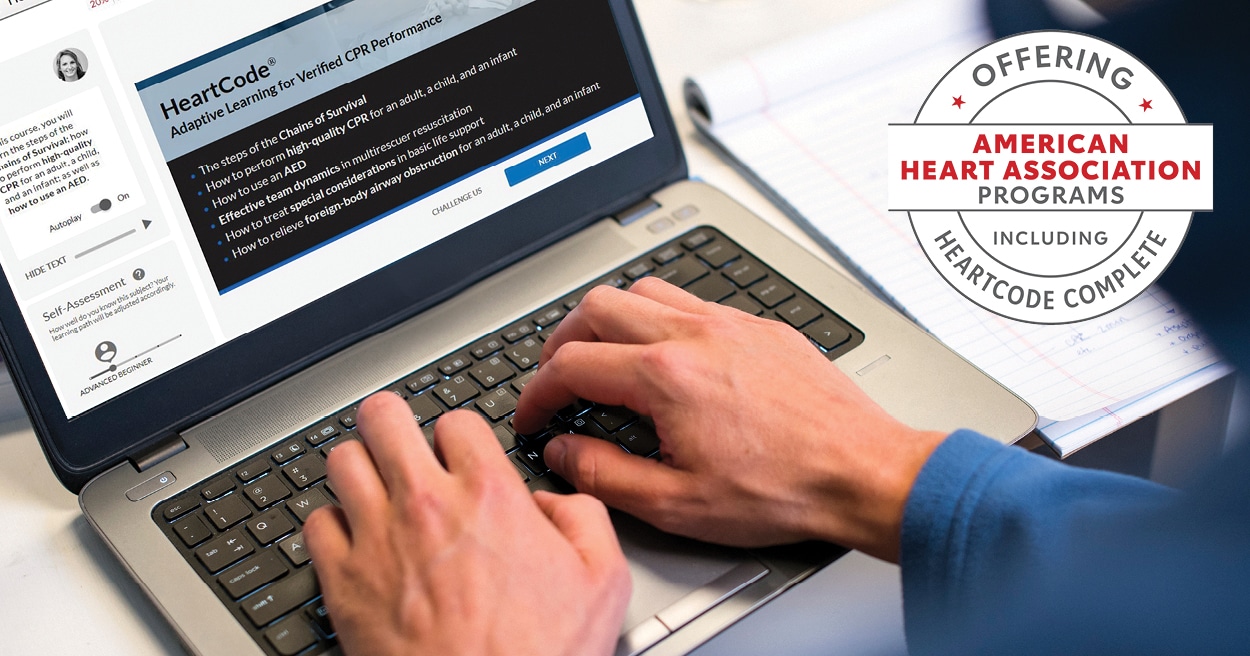American Heart Association© PALS Certification Classes in San Francisco

American Heart Association© PALS
Course Name: PALS Pediatric Advanced Life Support (Initial or Renewal)
Online Course Length: 3-4 hours (At your home.)
Skills Testing: 30-40 minutes (At one of our over 55 testing sites.)
Price: $290 (This includes the online PALS course, skills testing, & PALS card.)
Certification: American Heart Association© PALS certification card.
When: PALS classes are offered Monday – Sunday from 7 am to 6 pm
Card Issuance: You will receive the PALS certification card on day of class.
Add ons available: ACLS, BLS, First-aid, Opioid, or Bloodborne Pathogens
Low Price Guranetee: Lowest Prices in Northern CA. Price matching policy.
View PALS Courses in San Francisco & Other Cities Near You
Saving Young Lives: American Heart Association PALS Classes in San Francisco
In the vibrant city of San Francisco, amidst its iconic landmarks and diverse communities, American Heart Association (AHA) Pediatric Advanced Life Support (PALS) classes stand as a beacon of excellence in pediatric emergency care. These classes offer essential training in advanced pediatric resuscitation techniques, equipping healthcare professionals with the knowledge and skills to manage pediatric emergencies effectively. In this article, we explore the significance of AHA PALS classes in San Francisco, highlighting their role in saving young lives and ensuring the well-being of children within the community.
Understanding the Importance of PALS Training
Pediatric emergencies, such as respiratory distress, severe sepsis, and cardiac arrest, require specialized care and immediate intervention to optimize outcomes for young patients. PALS training provides healthcare professionals with the advanced knowledge and skills needed to assess, recognize, and manage pediatric emergencies in both pre-hospital and hospital settings. By mastering PALS algorithms, such as pediatric airway management, cardiac rhythm interpretation, and medication administration, healthcare providers become better equipped to deliver timely and appropriate care to pediatric patients in critical situations.
PALS Classes in San Francisco
AHA PALS classes in San Francisco offer comprehensive instruction in advanced pediatric resuscitation techniques, tailored to meet the needs of healthcare professionals, including physicians, nurses, paramedics, and respiratory therapists. These classes cover essential topics, such as pediatric assessment, effective communication and team dynamics, pediatric airway management, pediatric pharmacology, and post-resuscitation care. Led by experienced instructors with expertise in pediatric emergency care, PALS classes combine didactic lectures, interactive simulations, and hands-on skills stations to ensure participants develop confidence and proficiency in PALS protocols.
Hands-On Simulation Training
One of the distinguishing features of PALS classes in San Francisco is hands-on simulation training. Participants engage in realistic scenarios that replicate the challenges and complexities of managing pediatric emergencies in clinical settings. Using specialized pediatric simulation equipment and high-fidelity manikins, participants practice PALS algorithms, such as pediatric airway management, vascular access, defibrillation, and medication administration, in a controlled environment. Hands-on simulation training allows participants to enhance their clinical decision-making skills, refine their procedural techniques, and improve teamwork and communication, all of which are critical elements of effective pediatric resuscitation.
Impact on Patient Outcomes
The impact of PALS classes in San Francisco extends beyond individual participants to the pediatric patient population and their families. PALS-certified healthcare providers play a crucial role in optimizing patient outcomes during pediatric emergencies, providing timely and effective care that can mean the difference between life and death. By equipping healthcare professionals with the knowledge and skills to perform advanced pediatric resuscitation interventions, PALS classes contribute to improved survival rates, reduced morbidity, and enhanced quality of life for pediatric patients in San Francisco and beyond.
Conclusion
In San Francisco, American Heart Association PALS classes represent a vital investment in pediatric emergency care and patient safety. By providing comprehensive training in advanced pediatric resuscitation techniques, these classes empower healthcare professionals to deliver timely and effective interventions during critical pediatric emergencies, ultimately saving young lives and ensuring the well-being of children within the community. As San Francisco continues to prioritize healthcare excellence and pediatric emergency preparedness, the importance of PALS training cannot be overstated, ensuring that healthcare providers are prepared to deliver the highest standard of care to pediatric patients in their time of need.
FAQs
Who should attend PALS certification classes in San Francisco?
PALS certification classes are primarily designed for healthcare professionals who are involved in the management of pediatric patients, including pediatricians, emergency physicians, nurses, paramedics, and respiratory therapists.
How long does a PALS certification course typically last?
PALS certification courses usually span over two days, with a combination of didactic instruction, skills practice, and simulated scenarios to ensure comprehensive learning and skill mastery.
Is there a renewal requirement for PALS certification?
Yes, PALS certification is typically valid for two years, after which healthcare professionals are required to undergo PALS renewal courses to maintain their certification.

